How to Optimize Your Website Content to Get Rich Snippets in Google
If you’ve ever used Google to search for a recipe, you’ve probably come across rich snippets. It’s that section in the search results where instead of showing the website title and meta description, you see an image, a star rating, and additional information like cooking time and calories.
In this guide, we’re going to dig into rich snippets — what they are, why they make a difference for your website traffic, and how you can optimize for rich snippets on your own website.
What are rich snippets?
Rich snippets are search results that offer users more data than standard results, are more visually appealing, and can have interactive data. These enhanced search results can include images, product ratings, cooking times, FAQs, event details, and so on.
Google gets this information from structured data markup (also known as schema) on your website. It then interprets this data to produce the appropriate rich snippet, such as a recipe or review snippet, in the search engine results pages.
Rich snippet examples
A standard search result in Google looks like this:

Whereas a rich snippet might look like this:

Or this:
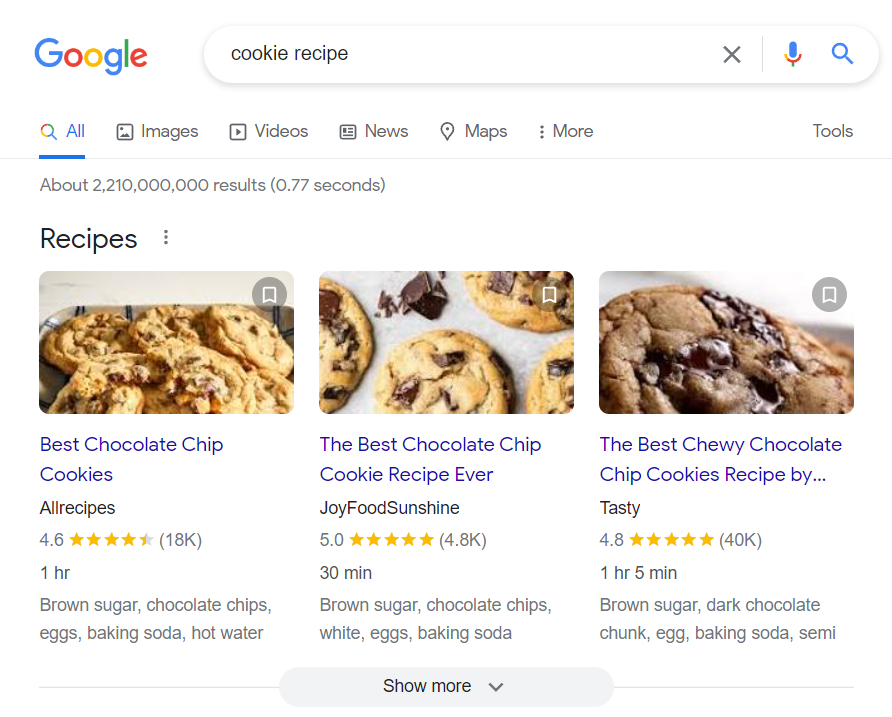
What’s the difference between rich snippets, rich results, and other enhanced SERP features?
According to Google, rich snippets (or rich cards) are the commonly known term for what Google now, officially, calls “rich results”. While many SEOs know these enhanced SERP features as “rich snippets”, they are essentially the same thing as “rich results” in Google’s parlance and the terms are often used interchangeably.
Rich results are just one type of enhanced SERP results, along with map packs, image carousels, and featured snippets. Basically, enhanced SERP features include any kind of result which is not in the standard search result format.
Are rich snippets important for SEO?
As humans, we are visual creatures. Things that stand out from the crowd tend to hold our attention.
So, although Google’s John Mueller says rich snippets (or rich results) and their associated structured data (or schema markup) are not an official ranking factor:
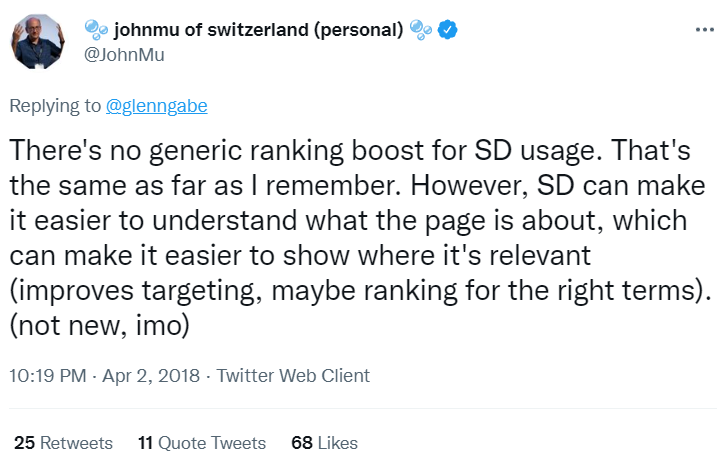
…the interactive and visual qualities of Google’s rich results mean that users are more likely to click on them, which can improve your organic click-through rate (CTR).
Plus, through the use of structured data, you can display more relevant information as part of a rich snippet, which can entice more clicks.
For example, by using the product schema markup, you can display user ratings as well as prices alongside your product’s page in the SERPs, allowing a user to immediately ascertain trustworthiness and see if the product is within their budget.

Types of rich snippets
Rich snippets come in numerous shapes and sizes and are designed to give additional at-a-glance information that will assist the user in answering their query and search intent. Let’s take a look at some of the most popular types of rich results in Google and Bing:
Review snippets
Review snippets are often found when searching for things like restaurants and hotels. They will display a star rating as part of the search results, like this one from Booking.com:
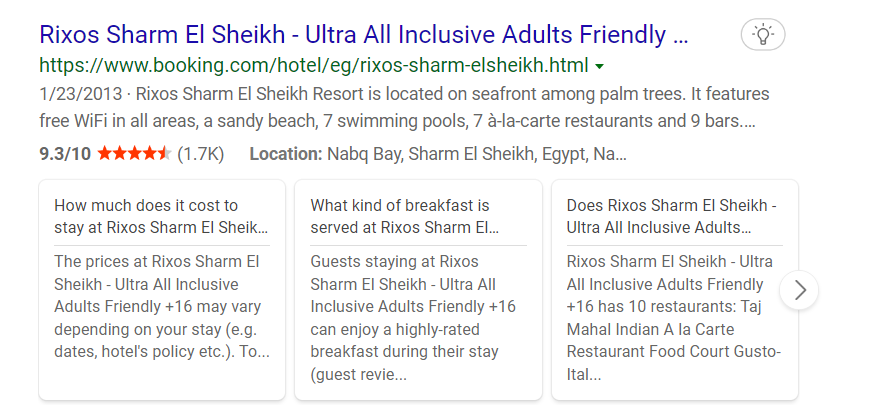
Recipe snippets
Rich results for recipes, as mentioned at the beginning of this article, offer additional at-a-glance information on things like cooking time, recipe steps, and nutritional information.
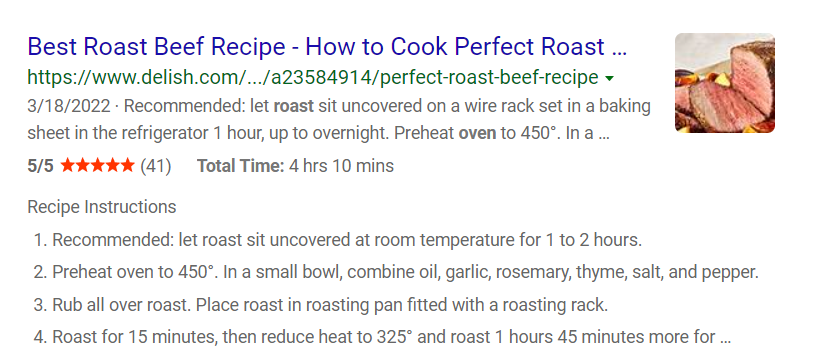
Music snippets
Music-related rich snippets offer additional information about a song or album, such as the release date, music genre, and the label and/or producers.
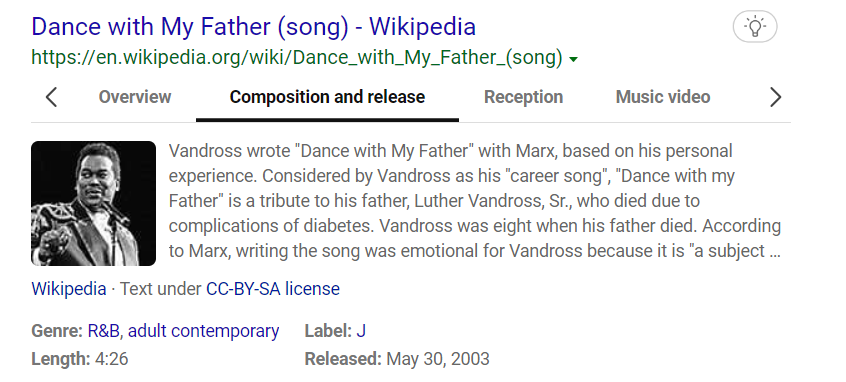
Product snippets
As mentioned earlier, product markup snippets give additional information about a specific product, like price and availability.

Organization snippets
Rich results for organizations display key information about a company, brand, or other organization, such as their logo, address, and contact details.
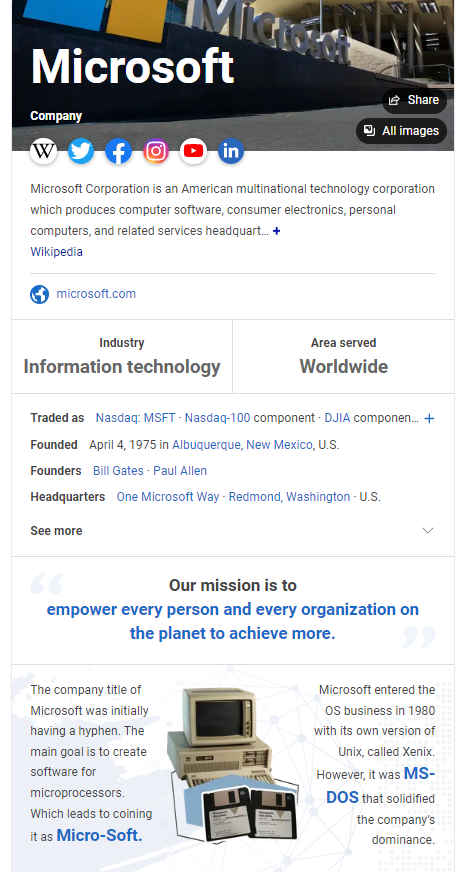
Top stories – rich results for news articles
If a website is approved by Google News, it can appear in the “Top Stories” box at the start of the search results.

Video snippets
Search engines require video markup to understand what a video is about and give that information to users in the SERPs.

Event snippets
The events snippet will show users key information about an upcoming event, such as time, date and location.
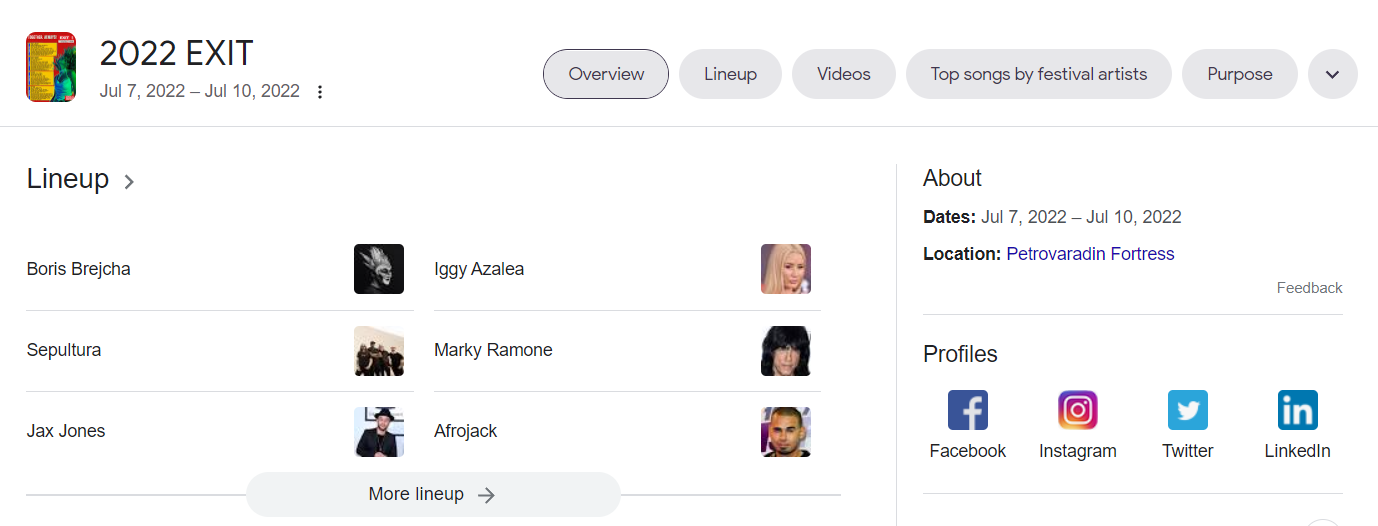
How to get rich snippets (rich results) in Google and other search engines
To be eligible for rich snippets in Google, you’ll need to start by adding structured data to your website content to help search engines better understand what your page is about.
This structured data (or schema markup) may assist semantic search systems’ ‘understanding’ of your content and may enhance Google’s view of your site’s expertise, authoritativeness, and trustworthiness, or E-A-T, since it provides Google with additional context for your web pages, like details about your content’s authors.
An introduction to structured data
If we refer back to our recipe example at the beginning of this article, without structured data, search engines may have a hard time parsing out information like how many cookies you can make from one recipe or the amount of time they will take to cook.
Structured data formats this information in a way that makes it easier for search engines to interpret and display. After all, search engines can’t ‘read’ your content in the same way that humans do, so adding key information in a format Google can easily interpret allows it to showcase key points that will benefit users by better meeting search intent.
This may sound complicated, but, worry not, you don’t need to be an expert engineer to add structured data to your pages. Thankfully, there are numerous structured data tools out there that can help you add these simple lines of code to a page without affecting the appearance of your pages (see below for some options!).
How to optimize your website content for rich snippets with structured data markup
As mentioned above, there are many different types of structured data markup. The ones I have detailed above are only the most popular. While many categories of schema exist, only some of these categories are eligible for rich results in Google and other search engines. These include:
- Products
- Events
- Books
- News media content
- Job-related content (for example, job listings, employer ratings, etc.)
- Education-related content (for example, university programs or training courses)
- Scientific datasets
For a full list of the types of enhancements available, you can see Google’s official documents on search result features.
There are different formats of structured data, but for the most part, as SEOs we use schema.org markup. The main reason for this is that not only is it super easy to implement, but it also uses JSON-LD (JavaScript Object Notation for Linked Data), which is supported by all major search engines, including Bing, and is officially recommended by Google. There are other types of structured data out there, like RDFa and Microdata, but it’s advisable to stick with JSON-LD.
Sidenote: It’s important to note at this point that implementing structured data, like adding any code to an existing website, can cause serious issues if not implemented properly. If you are not a developer and you want to add structured data to your website, you can use tools to help you. Also, please make sure you back up your website before making any changes at the code level!
First off, if you want to add schema.org markup to an existing page on your website specifically for the purpose of generating rich results, you should check if it is eligible for rich snippets by using Google’s Rich Results Test.
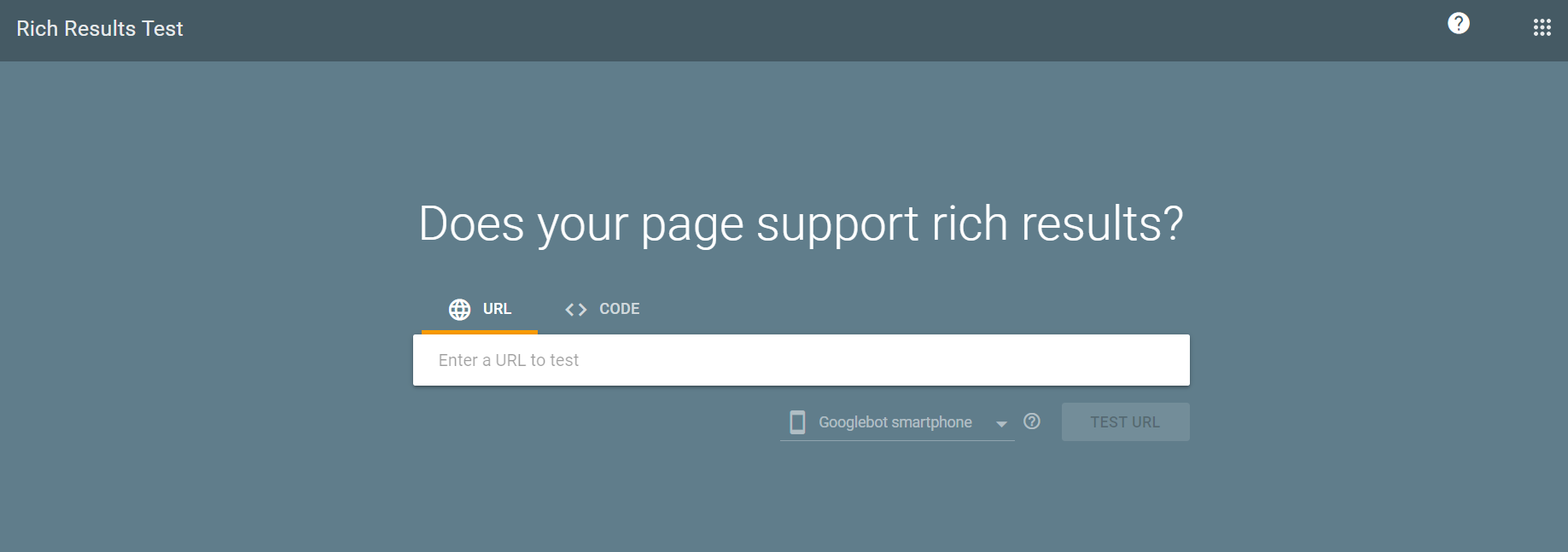
If your website uses WordPress as its CMS, you can opt for a number of structured data plugins to help you implement schema correctly. Plus, many SEO focussed plugins, like Yoast and Rankmath, offer schema options on their pro plans.
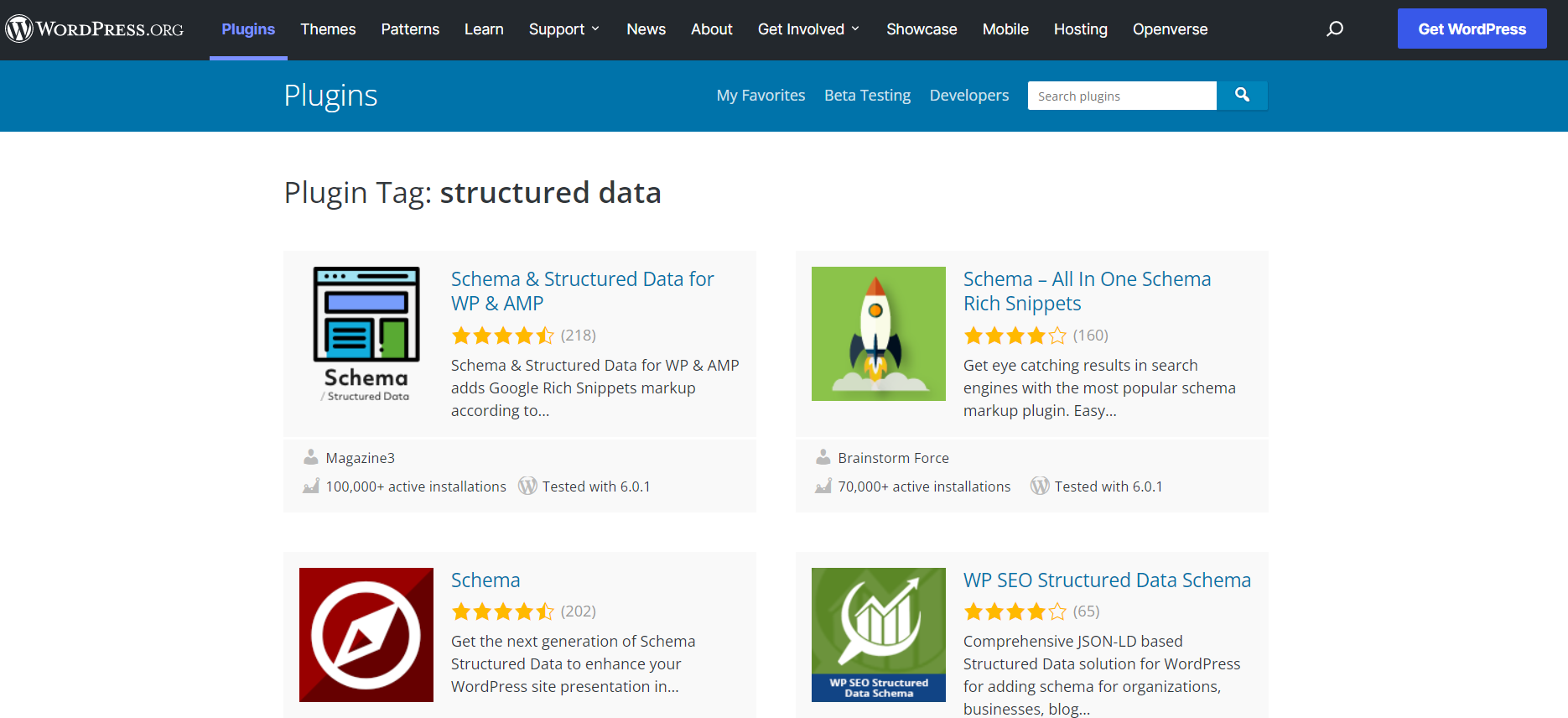
Lastly, you can use a Schema Markup Generator to create the code you need and then implement this via the <head> section of your website. The easiest way to deploy this is with the aid of Google Tag Manager.
How to validate structured data / schema markup
Once you’ve gone ahead and implemented structured data on your page, you will want to validate the markup to ensure it is working correctly.
Generally, when using plugins or a markup generator, your schema will be accurate 99 percent of the time, but it is always a good practice to use Google’s Rich Results Testing Tool to be sure the code is eligible for rich snippets.
(Note that, even if your structured data code is valid, it doesn’t guarantee your website will be featured with rich results! The choice of which pages to display with rich results is ultimately up to the search engines, but if getting the added potential for CTR increases is a priority for you, you’ll want to make rich result generation as easy as possible for Google.)
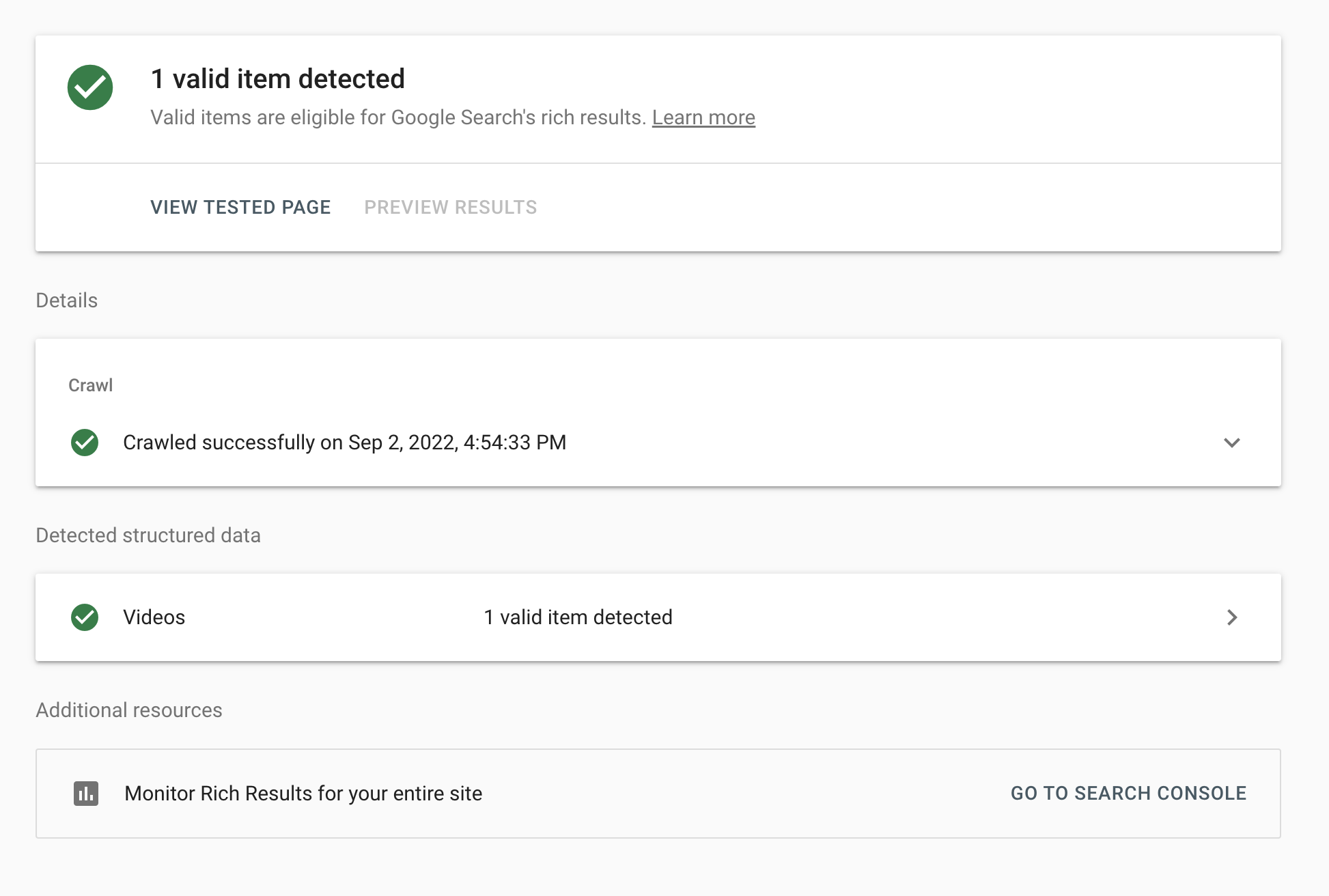
Monitor pages for structured data / schema markup errors
You should always get into good habits of monitoring your pages for errors, especially those around structured data markup. Thankfully, you can monitor your pages for both errors as well as performance right in Google Search Console (as well as with Lumar Analyze).
How to find structured data errors with Google Search Console
In the left-hand menu of Googe Search Console, you will find the SERP enhancements that your site is eligible for…

By clicking on an enhancement listed in this menu, you will be taken to a report that shows the pages on your site that are eligible for those enhancements and tells you whether the structured data code on those pages is currently valid.
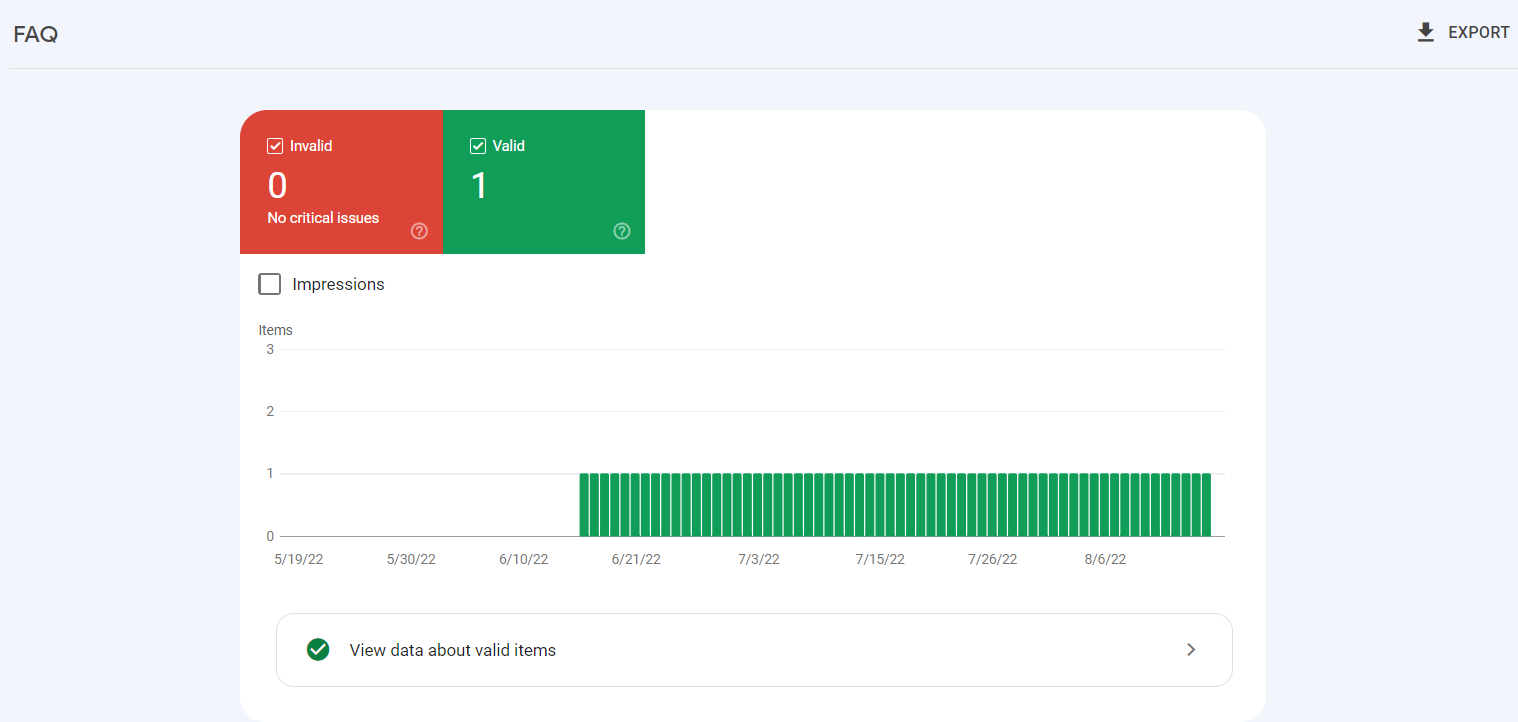
How to find structured data errors with Lumar
After crawling your site in Lumar’s Analytics Hub, open your project and you can find the “Structured Data” report in the left-hand menu:
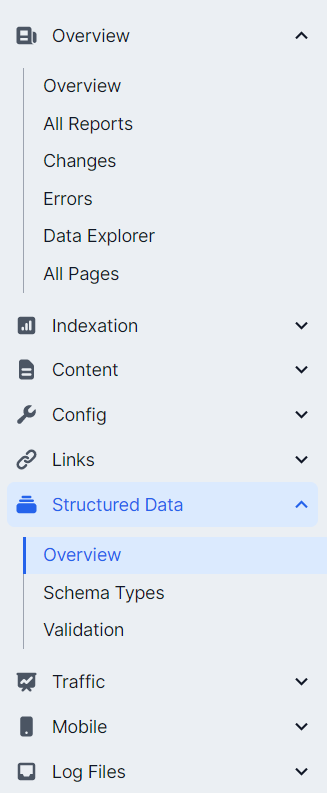
From here, you will be able to see an overview of all of your pages with structured data:
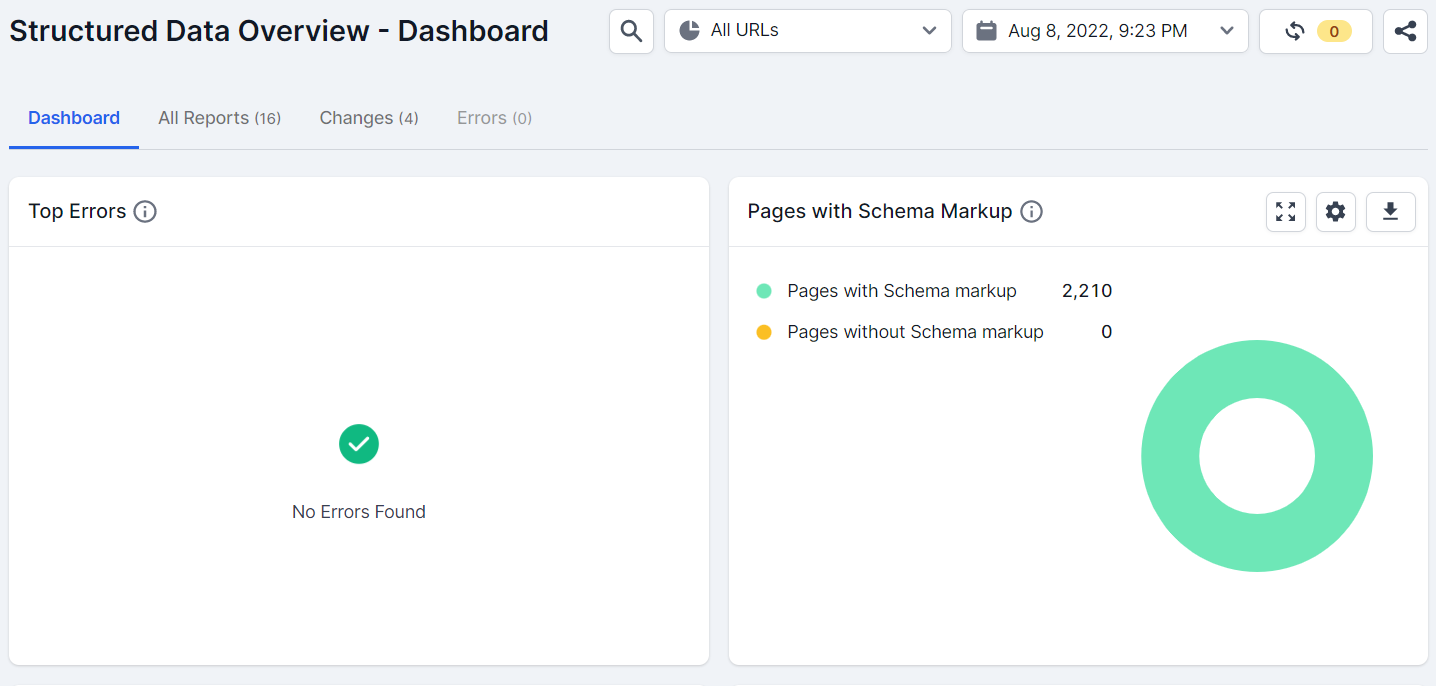
You can also see all of the schema types that appear on your website’s pages:
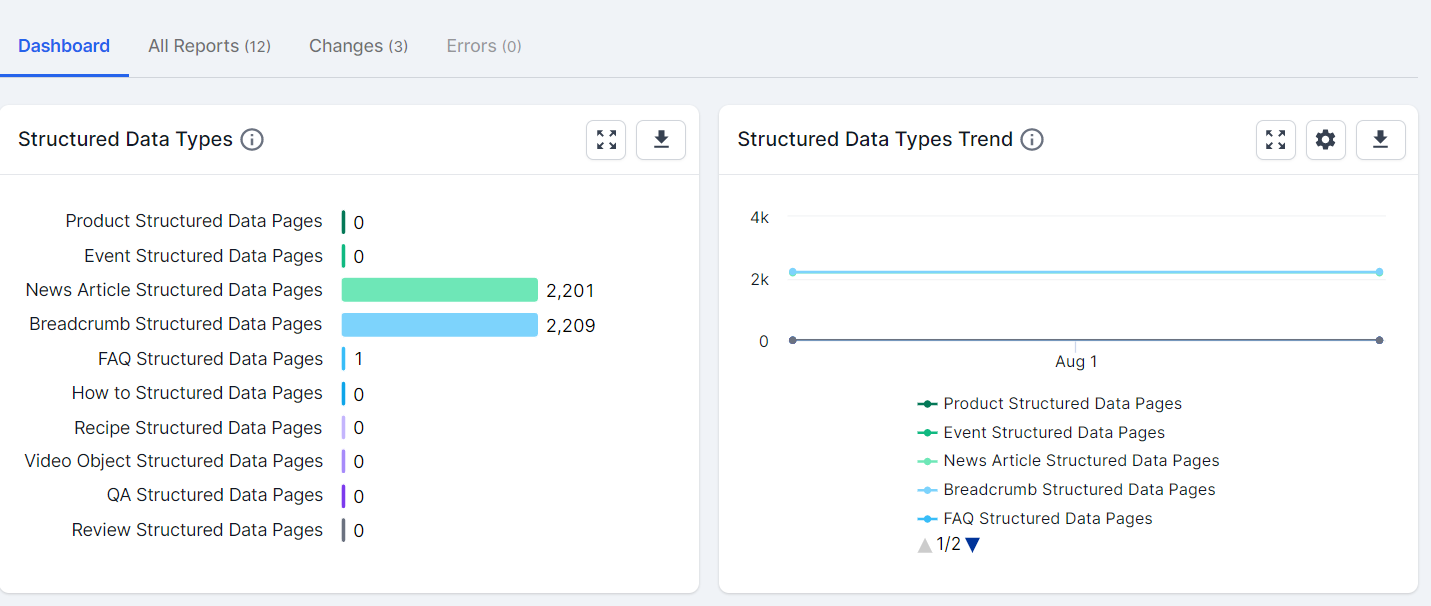
You can also see if there are any validation issues with your structured data in Lumar’s reports:
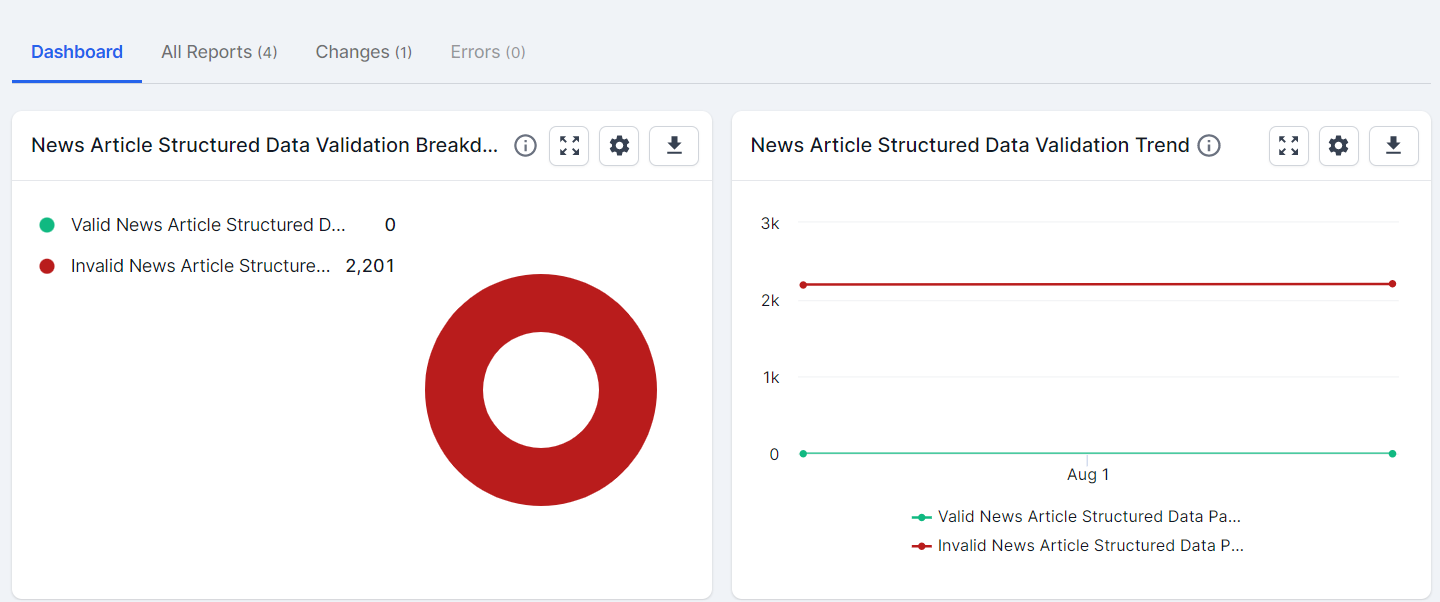
Final thoughts on optimizing your pages for rich results
Implementing structured data on your website can help your content be featured with rich results in the SERPs — but it offers far more than just making search results look pretty! Structured data can give search engines added insights into your website, helping them better understand your content to build topical relevance and authority, as well as positioning yourself as an expert with the use of the Author schema.






